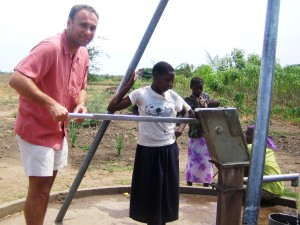
Today is World Water Day. I’ve been working on clean drinking water issues for years and was inspired to check in.
Unfortunately, the world water crisis is as dire as ever:
Nearly one billion people lack access to safe drinking water.
Almost 4,500 children die each day to water related diseases.
There are no simple solutions. Water issues are complicated by geographies, politics, cultures, and poverty. Not only is water essential for life, but access to safe drinking water is directly correlated to improvements in personal health, educational achievement, and worker productivity.
Over the past several years, corporate interest in water issues has moved from being cold, to warm, to now being “hot.” We’ve been watching three positive trends:
First, more and more companies are beginning to measure and be accountable for their water use and waste. For example, Coca-Cola publishes hard data about their water use, programs and challenges, including progress on their goal to improve water efficiency by 20% by 2012. In addition to operations, last week Coke committed $30 million over the next six years to provide access to safe drinking water throughout Africa. Many corporate social responsibility reports are now documenting a “water footprint.” Unfortunately, according to a new IBM study, although “a majority of companies ranked water management as a top priority, most lack necessary processes and systems for administration and control.”
Second, corporate brain power is being put to work to find new solutions. They’ve figured out that this can be good for business and society. Developing new filtration systems is part of GE’s Ecoimagination. Have you ever seen P&G’s Pur sachet clean a bucket of really gross water? You must see it work virtually. It is amazing; but I must admit that I still didn’t dare to drink it in real life. Also, this week IBM unveiled a portfolio of smart water services and technologies, including a more energy efficient membrane that quickly and reliably filters out salts and deadly toxins, such as arsenic.
Third, water has become a “public cause” for some companies.They are reaching out to consumers with education, engagement, and fundraising campaigns. Starbucks Ethos Water has embedded water issues deeply into the brand promise every day. UNICEF’s Tap Project, in partnership with American Express and hundreds of restaurants across the country, invites you to “turn one glass of tap water into 40 days of drinking water for a child.” How? By asking diners to pay $1 (through March 28th) for their table water. What are you waiting for?
To learn more about the clean drinking water crisis visit Wateraid, PlayPumps International , United Nation’s Water for Life, the Rotary Club, and the links listed above.
